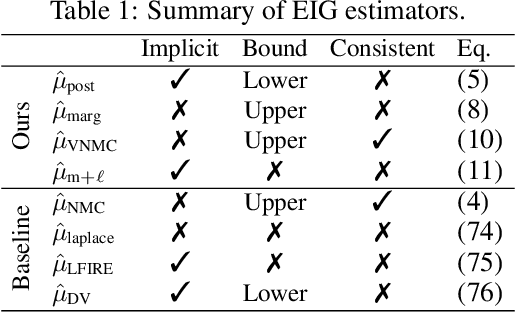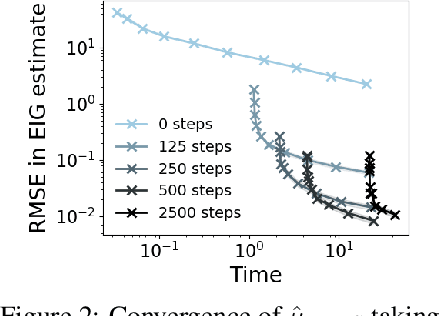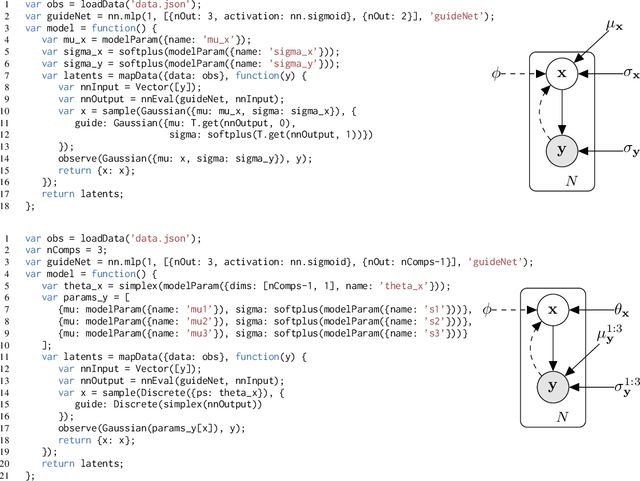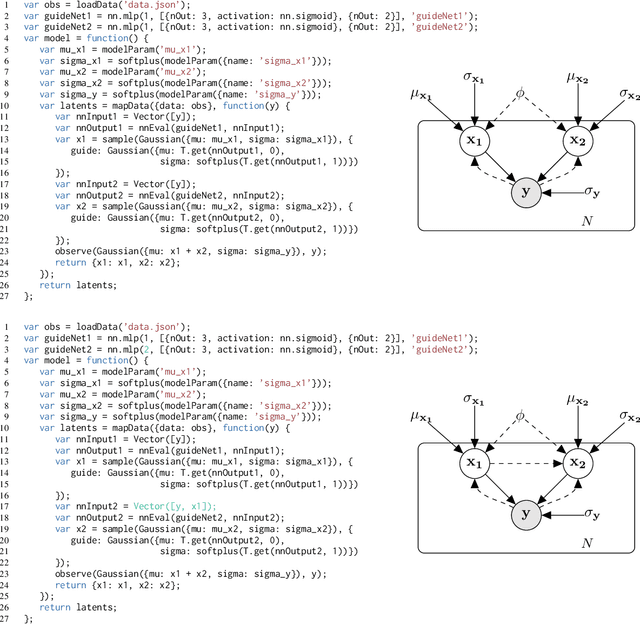Paul Horsfall
Variational Estimators for Bayesian Optimal Experimental Design
Mar 13, 2019



Abstract:Bayesian optimal experimental design (BOED) is a principled framework for making efficient use of limited experimental resources. Unfortunately, its applicability is hampered by the difficulty of obtaining accurate estimates of the expected information gain (EIG) of an experiment. To address this, we introduce several classes of fast EIG estimators suited to the experiment design context by building on ideas from variational inference and mutual information estimation. We show theoretically and empirically that these estimators can provide significant gains in speed and accuracy over previous approaches. We demonstrate the practicality of our approach via a number of experiments, including an adaptive experiment with human participants.
Pyro: Deep Universal Probabilistic Programming
Oct 18, 2018


Abstract:Pyro is a probabilistic programming language built on Python as a platform for developing advanced probabilistic models in AI research. To scale to large datasets and high-dimensional models, Pyro uses stochastic variational inference algorithms and probability distributions built on top of PyTorch, a modern GPU-accelerated deep learning framework. To accommodate complex or model-specific algorithmic behavior, Pyro leverages Poutine, a library of composable building blocks for modifying the behavior of probabilistic programs.
Deep Amortized Inference for Probabilistic Programs
Oct 18, 2016



Abstract:Probabilistic programming languages (PPLs) are a powerful modeling tool, able to represent any computable probability distribution. Unfortunately, probabilistic program inference is often intractable, and existing PPLs mostly rely on expensive, approximate sampling-based methods. To alleviate this problem, one could try to learn from past inferences, so that future inferences run faster. This strategy is known as amortized inference; it has recently been applied to Bayesian networks and deep generative models. This paper proposes a system for amortized inference in PPLs. In our system, amortization comes in the form of a parameterized guide program. Guide programs have similar structure to the original program, but can have richer data flow, including neural network components. These networks can be optimized so that the guide approximately samples from the posterior distribution defined by the original program. We present a flexible interface for defining guide programs and a stochastic gradient-based scheme for optimizing guide parameters, as well as some preliminary results on automatically deriving guide programs. We explore in detail the common machine learning pattern in which a 'local' model is specified by 'global' random values and used to generate independent observed data points; this gives rise to amortized local inference supporting global model learning.
 Add to Chrome
Add to Chrome Add to Firefox
Add to Firefox Add to Edge
Add to Edge